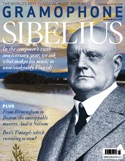Texte paru dans: / Appeared in: |
|
|
Outil de traduction (Très approximatif) |
|
|
Reviewer:
Alexandra Coghlan The young Spanish conductor Pablo Heras-Casado has established himself as one to watch in a series of impressive performances, recordings and prizes. He conducts everything from Mahler and Weill to Hasse; his first love, however, is Renaissance choral music – the repertoire he first encountered as a treble. His latest release returns to this heartland, championing the ‘largely unknown’ repertoire of north Germany’s Protestant composers from the late Renaissance and early Baroque. Conveniently united by the same surname, only two of the Praetoriuses featured here are actually related. Hieronymus (1560-1629) and Jacob (15861651) are father and son, part of a musical dynasty from Hamburg, while Michael Praetorius (1571-1621) was based at the court of Wolfenbüttel. While the unfamiliarity of this repertoire may be overstated by the booklet-notes, it’s still a welcome addition to the DG catalogue. With such a mainstream champion, might this attractive music – vibrantly rhythmic and filled with harmonic surprises – reach an audience that The Cardinall’s Musick’s fine 2008 recording (Hieronymus – Hyperion, 10/08) or the Bremen Baroque Consort’s 2007 release (Michael – CPO) haven’t?
The performances here seem determined to do so. Dynamic contrasts and the episodic character of many of the alternatim Magnificats are heightened, creating textural extremes that shift between the most fragile of solo-voice verse sections to full instrumental and vocal forces (liberally decorated with some fine cornett embellishments – highlights of the superb orchestral playing). While this is exciting moment to moment, it risks distorting the basic architecture of the music, giving it a Mahlerian heft that overwhelms its more modest proportions.
Thrilling in full spate, the Balthasar Neumann Choir sound uncharacteristically brittle and underpowered in lighter sections, artificially suppressed, it seems, in order to emphasise climaxes. Rhythms too, often syncopated and never far from a dance, are flattened and smoothed out for much of the disc, only allowed to flourish in closing Glorias. Like a black-and-white film with colour artificially added later, this repertoire achieves a certain new intensity here. But these brilliant shades feel oddly inorganic to music whose original monochrome dramas have their own impact. |
|
|
|
|
|
Cliquez l'un ou l'autre
bouton pour découvrir bien d'autres critiques de CD |
|

/0028947945222.jpg)


